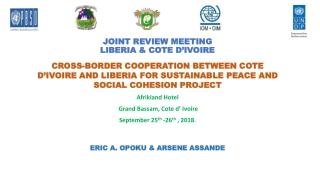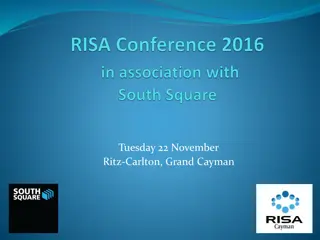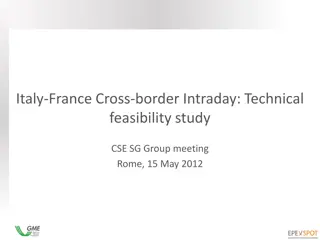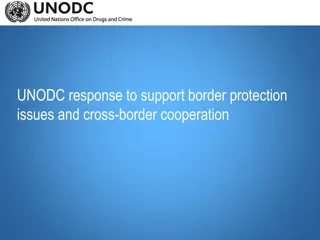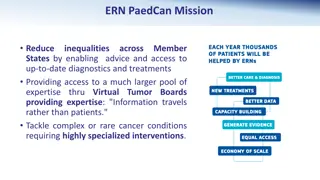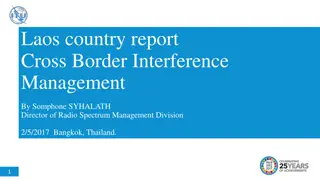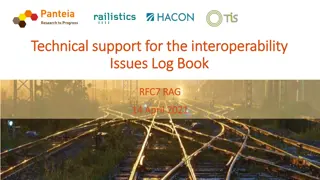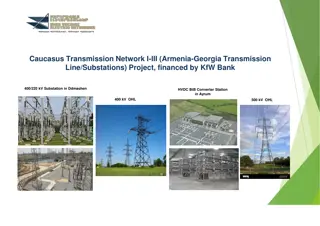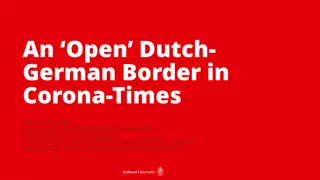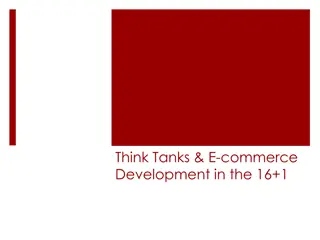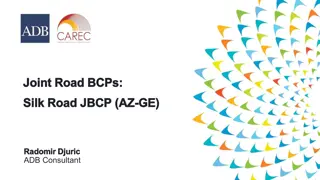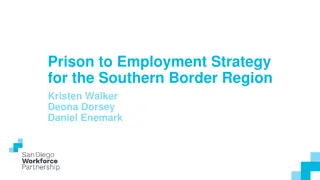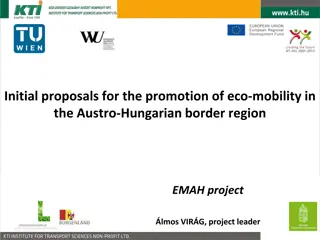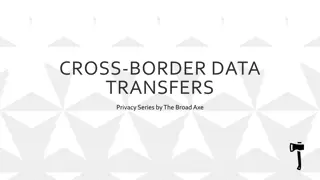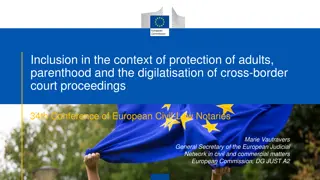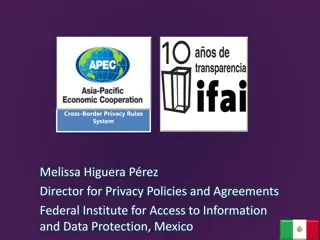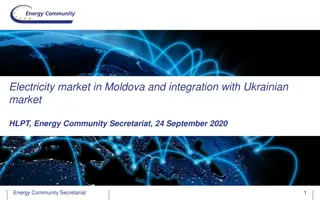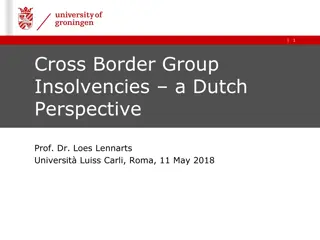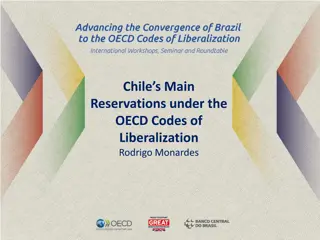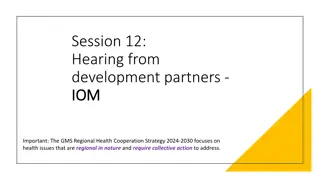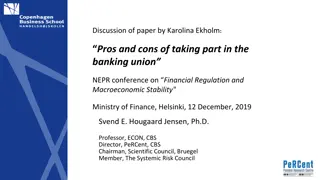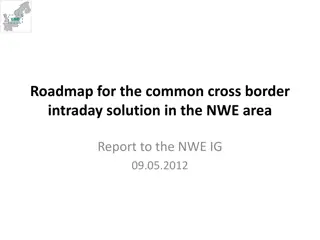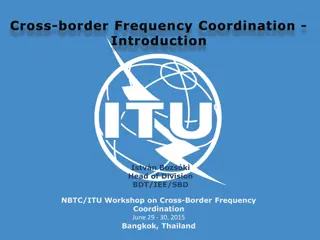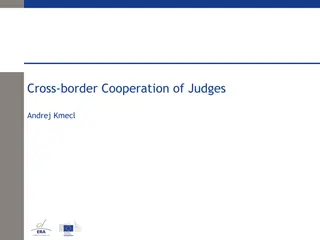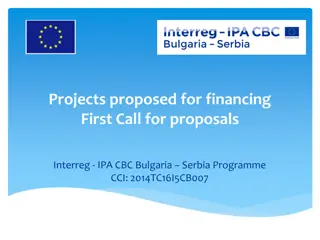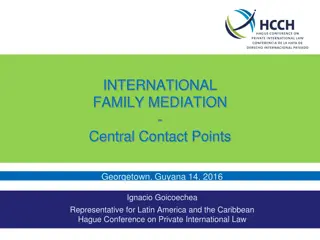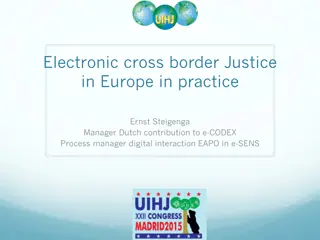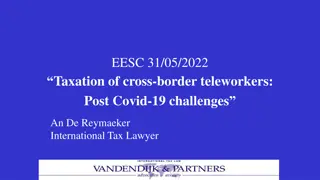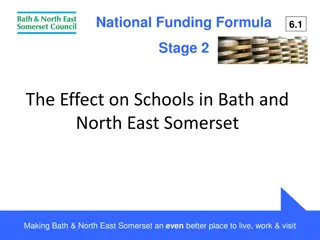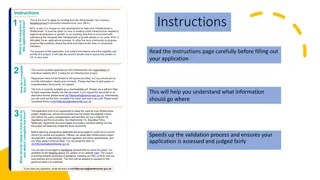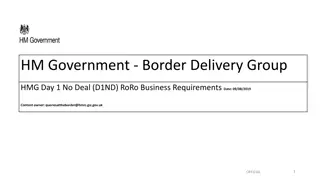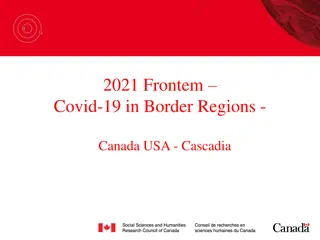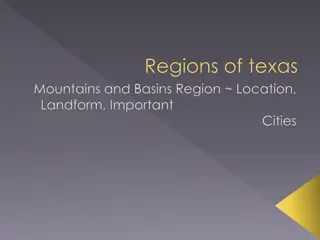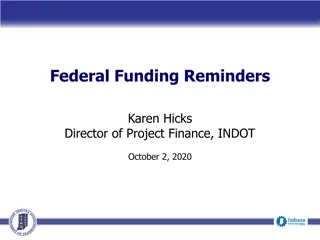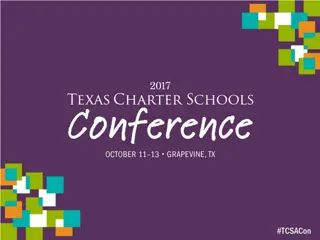Cross-Border Project Funding Details in Belogradchik Region
The provided information outlines the allocated budget and specific objectives for various priority axes in a cross-border project focusing on enhancing regional connectivity, sustainability, safety, skill development, and cooperation capacity. The budget allocation includes soft and hard project categories, with detailed budgets and durations specified for each specific objective. The first call for proposals targets Priority Axes 1, 2, and 3, indicating opportunities for project funding in these areas.
Download Presentation

Please find below an Image/Link to download the presentation.
The content on the website is provided AS IS for your information and personal use only. It may not be sold, licensed, or shared on other websites without obtaining consent from the author. Download presentation by click this link. If you encounter any issues during the download, it is possible that the publisher has removed the file from their server.
E N D
Presentation Transcript
Applicants Pack 1st call for proposals Belogradchik 25th of March, 2015
Priority Axis and Specific Objectives PA 1 A well connected region Specific Objective 1.1 Improve the planning, development and coordination of cross-border transport systems for better connections to TEN-T transport networks Specific Objective 1.2 Increase transport safety on waterways and maritime transport routes PA 2 A green region Specific Objective 2.1 To improve the sustainable use of natural heritage and resources and cultural heritage Specific Objective 2.2 To enhance the sustainable management of the ecosystems from the cross-border area PA 3 A safe region Specific Objective 3.1 To improve joint risk management in the cross-border area PA 4 A skilled and inclusive region Specific objective 4.1 To encourage the integration of the cross-border area in terms of employment and labor mobility PA 5 An effective region Specific objective 5.1 To increase cooperation capacity and the efficiency of public institutions in a CBC context
Total allocation per PA 12,690,913 17,767,279 96,450,936 PA 1 48,225,468 PA 2 PA 3 PA 4 63,454,564 PA 5
Allocated budget The first call for proposals shall only concern Priority Axis 1, 2 and 3 and the budget of the call equals the entire allocation for these 3 PAs this may be the only call for these 3 PAs Priority Axis ERDF National funding Total funding PA 1 81,983,295 14,467,641 96,450,936 PA 2 53,936,379 9,518,185 63,454,564 PA 3 40,991,647 7,233,821 48,225,468 Total 176,911,321 31,219,647 208,130,968
Allocated budget Indicative allocation for soft projects: Priority Axis ERDF National funding Total funding PA 1 8,198,330 1,446,764 9,645,094 PA 2 10,787,276 1,903,637 12,690,913 PA 3 4,099,165 723,382 4,822,547 Total 23,084,721 4,073,783 27,158,554 Indicative allocation for hard projects Priority Axis ERDF National funding Total funding PA 1 73,784,965 13,020,877 86,805,842 PA 2 43,149,103 7,614,548 6,510,439 50,763,651 43,402,921 PA 3 36,892,482 Total 153,826,550 27,145,864 180,972,414
Budget and duration per project 85% ERDF, 13% national co-financing, 2% own contribution Budget (EUR) Duration (max. months) Soft Hard Soft Hard S.O. 1.1 0.25 mil. 1.5 mil. 1 mil. 10 mil. 24 36 S.O. 1.2 0.25 mil. 2 mil. 0.50 mil. 8 mil. 24 36 S.O. 2.1 0.25 mil. 1.5 mil. 0.50 mil. 6 mil. 24 36 S.O. 2.2 0.25 mil. 1.5 mil. 0.50 mil. 6 mil. 24 36 S.O. 3.1 0.25 mil. 1.5 mil. 0.50 mil. 6 mil. 24 36
Rules of the call for proposals Eligibility of applicants The applicants have to comply with a set of requirements related to their legal status, geographical location, professional and financial background. Be Romanian or Bulgarian non-profit making bodies/organizations, legally established according to the national legislation of the state on whose territory they are located; Be non-governmental organizations (associations or foundations), public sector operators, bodies governed by public law, local/regional/national authorities Have stable and sufficient financing sources to ensure the continuity of the operation of their organization throughout the project and, if necessary, to play a part in financing it Be able to demonstrate their capacity to manage their share of activities in the project for which the subsidy is requested; Be the body/institution entitled to take action in the field/fields addressed by the project;
Rules of the call for proposals Eligibility of applicants have their headquarters in the eligible cross border region or; are organizations whose headquarters are not situated in the eligible area, but are located in Romania or Bulgaria and have local/regional branch offices with legal statute (legal entity) established in the eligible area. are Romanian or Bulgarian national public authorities whose area of competence, established by legal acts, extends to the eligible area of the programme. The applicants, located in Romania and Bulgaria, but whose headquarters are not situated in the eligible area and cannot legally open a local/regional branch office with legal personality in the eligible area may participate in projects provided that their budget is limited to 20% of the project s total budget The activities have to be implemented in the Programme eligible area. However, in case a project has to be implemented partially outside the eligible area, it has to prove that it is in for the benefit of the programme area. The total costs incurred outside of the eligible area (related to any activity or any category of expenditure) shall be limited to 20% of the ERDF total eligible project budget, irrespective of the location of the partner.
Rules of the call for proposals Eligibility of applicants Indicative examples of potential applicants for all Priority axes: County Councils/ District Administrations; Local Councils/Municipalities; Associations of local public authorities; Chambers of Commerce/ SMEs associations; Educational institutions (schools, universities etc.); Ministries and their local/regional departments/bodies; Non-profit research institutes; Other NGO s acting in the fields financed by the programme EGTCs.
Rules of the call for proposals Eligibility of expenditure Is necessary for initiating and carrying out the project and complies with the principles of sound financial management Is in line with the provisions of the contracts The costs are definitely borne by the beneficiary Does not exceed the ceilings set at Programme level Is incurred between date of selection and the last day of the implementation period Preparation cots are eligible if incurred 1.01.2014 and the submission of the AF, and paid at the latest within 2 months following the deadline for submission of the AF (max. 10% at project level) The expenditure has actually been paid out (max. 2 months following the implementation period) Is recorded in the beneficiaries accounts and tax documents Is verified and validated by FLC Has not been subject to financing from other public funds
Rules of the calls for proposals Eligibility of expenditure Ineligible expenditures at Programme level: fines, financial penalties and expenditure on legal disputes and litigation; costs of gifts, except those not exceeding EUR 50 per gift where related to promotion, communication, publicity or information; costs related to fluctuation of foreign exchange rate; interest on debt; the purchase of land; value added tax except where it is non-recoverable under national VAT legislation; in-kind contribution and leasing; costs related to the purchase of second hand equipment; charges for national financial transactions;
Rules of the calls for proposals Eligibility of expenditure Categories of eligible expenditures: Commission's Delegated Regulation (EU) No 481/2014 Staff costs Office and administrative expenditures Travel and accommodation costs External expertise and services costs Equipment expenditure Additional rules set at Programme level Infrastructure and works
Rules of the calls for proposals Eligibility of expenditure Reimbursement of expenditures: 1. Based on flat rates Staff costs: max. 15% soft projects, max. 5% hard projects Office and administrative expenditures: max. 5% soft projects, max. 1% hard projects Beneficiaries do not need to document that the expenditure has been incurred and paid, or that the flat rate corresponds to the reality 2. Based on real costs Travel and accommodation External expertise and services costs Equipment expenditure Infrastructure and works
Rules of the calls for proposals Deadline for receipt of Applications 30th of June 2015 16:00 o clock for soft projects 30th of September 2015 16:00 o clock for hard projects Applications shall be submitted in one original and one copy, together with a CD/DVD containing a full scanned version of the AP and its annexes Applications have to be submitted to CBC Regional Office Calarasi
Rules of the calls for proposals Evaluation process The evaluation shall be performed by the JS The evaluation of the projects shall be made after each deadline, for the applications submitted before the respective deadline In order to be proposed for financing, the applications must respect the administrative and eligibility criteria and receive at least 60 points at the technical and financial evaluation. The contribution to Programme indicators (output and result) shall also be taken into consideration. The projects are evaluated in the order they are received. In case a project has at least 90 points as final score it goes immediately to the Monitoring Committee for approval and, after observing the contracting procedure, the financing contracts are signed.
Rules of the calls for proposals Evaluation process An analysis will be performed at the selection moment when projects contribute to indicators (in theory, by contracting) in a percent of at least 120% and when the financial indicators from the Performance framework are secured (in theory, by contracting). Depending on the analysis (performed at Programme level) the Monitoring Committee may decide to stop contracting although the financial allocation was not reached. One beneficiary cannot simultaneously have more than four projects in implementation. In case 5 projects are selected, the fifth one shall be put on a reserve list (and could be contracted after the finalization of at least one of the other projects, provided the Programme has the financial allocation available).
Rules of the calls for proposals Pre-contractual conditions Pre-contractual visits and request for additional documents Failure to provide the requested documents within the set deadlines during pre-contracting period will lead to the rejection of the project Beneficiaries shall sign a Partnership Agreement Projects may submit RC at any given time provided it is >5,000 euro Progress Reports shall be independently of reimbursement claims Beneficiaries shall submit a schedule for submitting first level control requests, which shall be mandatory submitted every 3 months,
Rules of the calls for proposals Pre-contractual conditions Decommitment at beneficiary level in case the amount set for the middle of the implementation period is not respected. In case the project has a financial execution lower than: 75% 10% decommitment 50% 25% decommitment The revised budget has to be submitted within 2 weeks, otherwise the reduction shall be applied proportionally to all budgetary lines of the concerned beneficiary In case the beneficiaries decide to stop implementing the project, the funds shall be recovered
Consultation process started on 17th of December 2014, ended on 31st of January 2015 comments received from 6 legal entities from Romania and 8 legal entities from Bulgaria (public authorities, NGOs, public institutions) questions regarding interpretation of eligibility conditions for potential applicants, calculation of staff costs, proposals for modification of the ceilings for expenditures in order to match the market prices, flexibility of the budget construction inside the categories of expenditure, application form, comments on indicators and technical documentation needed for investment projects etc. proposals to modify the
Next steps Launch of the 1st call for proposals 26.03.2015 Deadline submission soft projects 30.06.2015 Finalization of soft projects evaluation and MC approval 09.2015 Deadline submission hard projects 30.09.2015 Contracting of soft projects 10.2015 Finalization of hard projects evaluation and MC approval 01.2016 Contracting of hard projects 02.2016


